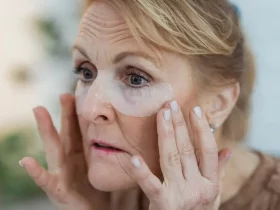The Impact of Plastic Surgery on Quality of Life
Generally speaking, patients report that their quality of life improves dramatically after plastic surgery, especially when they get treatment from licensed and established cosmetic surgeons.
However, it is essential to remember that there is such a thing as too much cosmetic surgery. People seeking an unrealistic appearance standard can experience adverse psychological effects such as body dysmorphia.
Improved Self-Esteem
Many people who undergo plastic surgery Bellevue experience a boost in their self-esteem. This is because they feel more satisfied with their physical appearance. This can have a positive impact on both their emotional and mental health.
Individuals who are shy or lack confidence in their appearance may become more outgoing following cosmetic surgery. This can lead to better relationships. It can also encourage them to take risks and try new things.
Cosmetic procedures such as liposuction and breast augmentation can improve a patient’s quality of life in other ways. For example, they can motivate individuals to adopt healthier eating habits and exercise regimes. Additionally, they can alleviate pain in areas of the body, such as the neck and back. In some cases, this can help reduce the risk of diabetes. It can also help lower blood pressure and improve cardiovascular health. These are all beneficial for a person’s quality of life.
Improved Confidence
Many people who undergo plastic surgery feel a renewed sense of confidence. This renewed confidence can affect all areas of life, including work, relationships, and physical health. It can also lead to a higher quality of life.
For example, one study showed that patients with a positive perception of their appearance reported less depression and anxiety. The researchers found that the improvements in appearance correlated with improvements in other quality of life, such as body satisfaction, health, and sex.
The study used a standardized self-assessment questionnaire measuring satisfaction with various quality-of-life domains. The sample included 93 patients who underwent cosmetic nasal and facial surgical procedures. The patients were surveyed preoperatively, at three months and six months post-surgery. Rhinoplasty and surgery for the aging face had different impacts on these domains, but both improved overall quality of life. A similar effect was seen in males. This may be because men are less likely to experience negative emotions or anxieties about their bodies.
Better Relationships
While many people undergo cosmetic surgery to improve their looks, they often experience other positive effects. The results of these surgeries can lead to new opportunities and improved relationships with friends and family members. In addition, a more confident appearance can inspire other areas of life, such as career and personal goals.
Despite the surge in the popularity of plastic surgery, psychological researchers have not yet thoroughly investigated the long-term effects of cosmetic enhancements on patients. This is due to the limited number of longitudinal studies, contradictory findings, small sample sizes, and short follow-ups.
Some researchers have warned that cosmetic surgery can hurt the quality of life if the patient suffers from psychiatric conditions like body dysmorphic disorder (BDD). BDD involves excessive concern about one’s physical features, which causes anxiety and depression. This is why it’s essential to understand the difference between a realistic surgical outcome and an unrealistic expectation before undergoing any procedure.
Increased Energy
Many people who undergo plastic surgery report increased energy levels because they no longer feel self-conscious about their appearance. This renewed confidence inspires them to be more active and try new things. It also boosts their overall quality of life, especially in work and relationships.
Cosmetic surgery can be a good choice for people who want to make subtle changes to their appearances, such as eyelid reshaping, rhinoplasty (nose job), and otoplasty (ear pinning or reshaping). However, having realistic expectations for your procedure and working with an experienced plastic surgeon to ensure your results are safe is essential.
Some cosmetic procedures can negatively impact your mental health if you don’t get the right surgeon and have unrealistic expectations. For example, body dysmorphic disorder is a common mental illness associated with cosmetic surgery. This is when you become obsessed with one or more perceived flaws in your appearance.









Hello!! My name is Annabella
I love to eat, travel, and eat some more! I am married to the man of my dreams and have a beautiful little girl whose smiles can brighten anyone’s day!